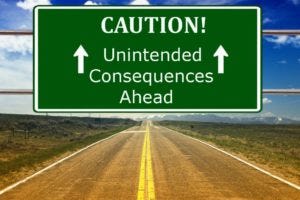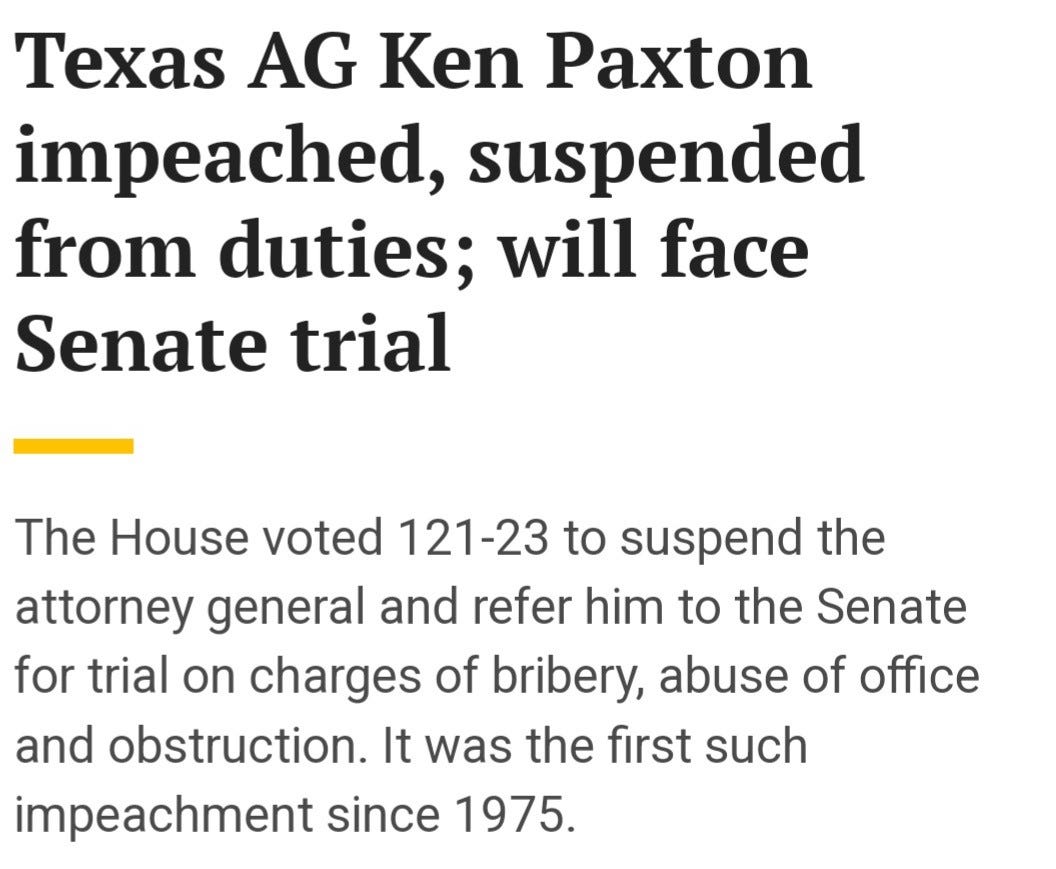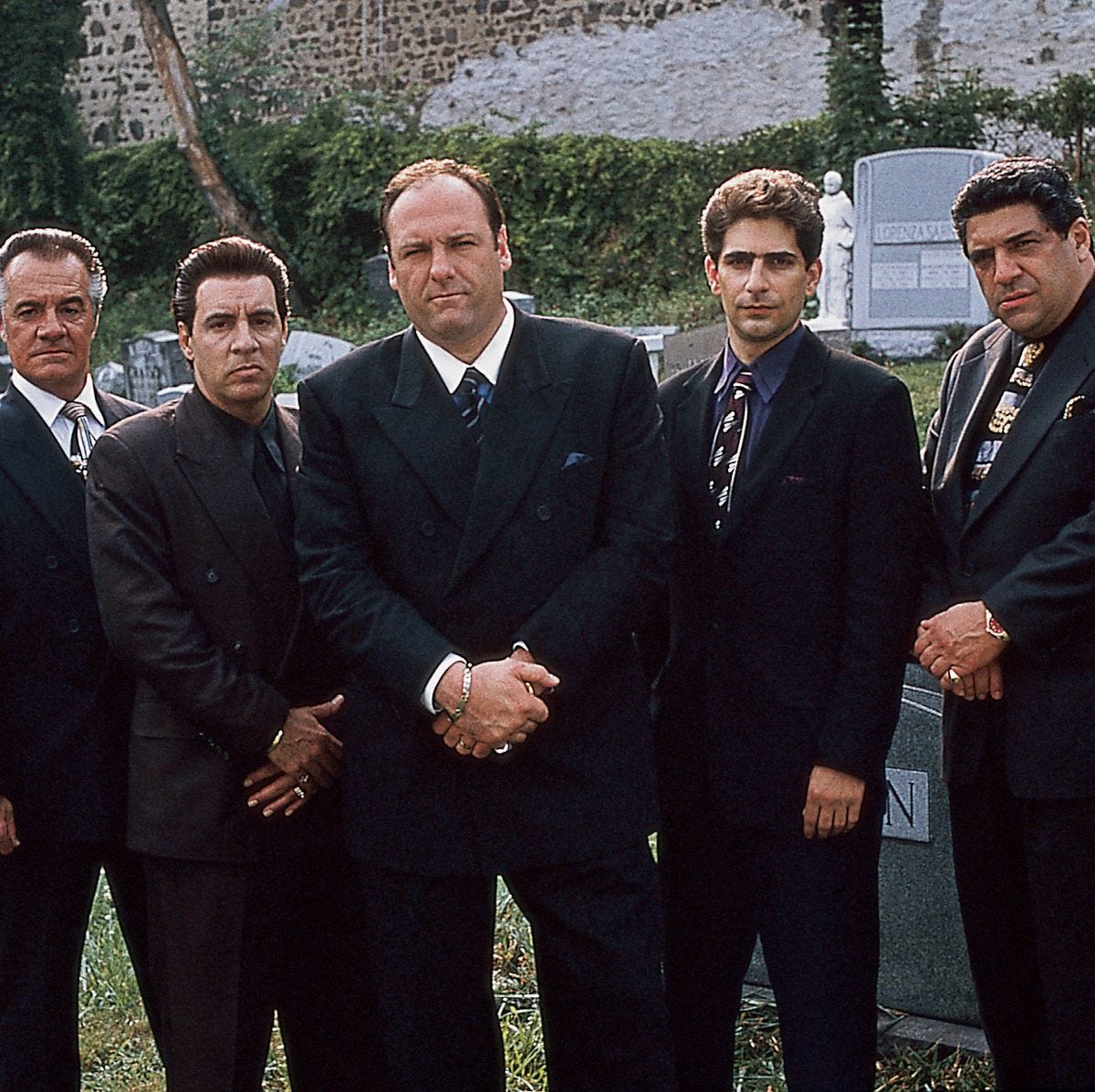Texas passed HB 1181 in 2023, a law requiring age verification for visitors to pornography websites. A court injunction prompted by legal action from Pornhub delayed the enforcement, which was to begin on September 1, 2023. On March 7, 2024, a ruling by the U.S. Court of Appeals for the Fifth Circuit partially overturned the injunction. One week later, Pornhub blocked access to the website in Texas.
It is an issue Speak Truth To Flour already covered in a humorous manner (well, hopefully humorous) on April 2nd with “Texas Pornhub Hostage Crisis: Day 21. Tragedy in Texas, the story corporate media refuses to cover.”
https://speaktruthtoflour.substack.com/p/texas-pornhub-hostage-crisis-day
This shifts to a more serious tone with an assessment of HB1181 and its consequences.
Whereas Pornography
Proponents of HB1181 claim the harms of pornography demand that we prevent minors from accessing the content on websites like Pornhub. The American College of Pediatricians discuss the risks of porn. 1
Consumption of pornography is associated with many negative emotional, psychological, and physical health outcomes. These include increased rates of depression, anxiety, acting out and violent behavior, younger age of sexual debut, sexual promiscuity, increased risk of teen pregnancy, and a distorted view of relationships between men and women.
How pornographic content is consumed today is a large part of the problem. Throughout the decades there’s always been opportunity for minors to view sexual content, whether it was finding a Playboy in your father’s garage, peering over the wall of an adult drive-in theater, or sneaking downstairs at night to watch Cinemax with the sound turned down. The internet and smartphones have changed what once was viewed in moderation by children to something that is available anytime and anywhere.
A Complicated Question
This isn’t unique to porn. Social media algorithms are pushing all kinds of questionable content to children and the way they view clips in rapid fire succession may not only be changing what they are exposed to, but how they process it.
There’s a common assumption that minors can’t reconcile the difference between the performance of sex in porn with real sexual and emotional relationships, similar to what people have argued about rap music or violent movies and video games. Do we really believe a 16-year-old boy thinks he will regularly encounter women who get their hand stuck in a sink or body stuck in a dryer? Does a 17-year-old girl think she must have sex every time she climbs into a taxi or goes for a massage?
While there are signs that today’s youth act differently than previous generations, causality becomes difficult to determine. Young people have lower sex drives than before. How much can be attributed to excessive porn consumption versus the higher rate of minors being prescribed psychotropic drugs that can diminish libido? Is porn discouraging young people from engaging in relationships and marriage, or are they simply risk adverse because so many have grown up around divorce and lived in split households? David Segal explores the challenges of scientifically linking porn with bad consequences. 2
Ethics are a big part of it. The ideal study, say academics, would round up a group of teenagers who had never viewed online pornography, then provide them with a steady does of it for two to three months. At the end, they would be quizzed to see whether their attitudes or actions had changed. There would be tests for both mental and physical effects.
Let’s leave aside the difficulties of finding porn-innocent teenagers. Exposing them to sexually explicit material is against the law, which means no university would approve of such a study.
These are valid challenges, yet it still is very likely that viewing porn can have a negative impact. For the purpose of clarity in the rest of this discussion, let’s stipulate that:
1. Pornography can be damaging to a person’s psyche, relationships and/or general life.
2. A particularly addictive porn viewing habit can exacerbate any harmful effects.
3. The problems associated with porn consumption are more prevalent and problematic in contemporary society.
4. Minors are affected by porn more than in previous eras and something should be done.
Allowing for this, the focus can shift to the question relevant to this piece. If porn consumption by minors is bad, is government intervention the appropriate response?
Government’s Role
This discussion could just as easily be about TikTok and the United States. There’s a compelling argument that TikTok is harmful for America’s youth and a good bet that China is intentionally manipulating the app to inflict as much chaos and damage as possible. Does that justify the government shutting down TikTok or forcing an ownership change? Such an act might be more dangerous than the content itself when you consider the precedent it would set. Porn may feel like the simpler scenario to justify government intervention but the implications surrounding TikTok v. United States also exist with Pornhub v. Texas.
Advocates for HB 1181 will tell you it is only about requiring age verification for minors but there’s no way to do that without also requiring age verification for adults. Moreover, there’s no way to verify age without verifying identity. The legislation does include a provision requiring companies don’t retain the identify information of website visitors. People will still be afraid of the consequences in disclosing their identity. In and of itself, this legislation will have a chilling effect on free expression.
Identity Disclosure
The law dictates that information must remain private. Still, there’s no assurance this will or even can happen. Jason Kelley and Adam Schwartz write about the feasibility of age verification in March of 2023. 3
Last year, France’s Audiovisual and Digital Communication Regulatory Authority ordered several sites with adult content to implement age verification. Then France’s National Commission on Informatics and Liberty, CNIL, published a detailed analysis of current age verification methods. It found that no method has the following three important elements: “sufficiently reliable verification, complete coverage of the population, and respect for the protection of individuals' data and privacy and their security.” In short, every age verification method has significant flaws.
The question can’t stop at whether the law’s intentions are honorable because the execution may be unreliable. Apple’s cloud storage was supposed to be secure; in 2014, many female celebrities learned it wasn’t when their nude photos and sexual videos were leaked. Even today, we regularly hear companies disclosing breaches of customer information.
Slippery Slope
The risk isn’t limited to unintentional disclosure. After a law is passed, future legislative acts are far more likely to increase reach and enforcement rather than ease restrictions. If checking identity becomes reasonable, how long until retaining that information becomes acceptable? What is the likelihood that identities will inevitably be associated with their viewing history?
Amazon’s Alexa is already “testifying” with recordings from devices being used in trial proceedings. Could lawyers one day subpoena porn records in a rape trial to show the defendant enjoyed rape fantasy content or videos where reluctant women are convinced to have sex? Wives might be able to introduce a husband’s porn proclivities into a divorce proceeding. A couple could be denied the opportunity to adopt because the wife watched a porn video where a stepmom shares a bed with her stepson and it leads to sex.
There are fears of something similar to China’s social credit system emerging in America; perhaps one day your porn habits could lower your credit score, inhibiting your ability to purchase a home. Florida just passed their own version of adult verification for porn websites. What happens if Governor Ron DeSantis decides websites with transgender content are inappropriate for minors and must have an age verification system? Governor Gavin Newsome may want age verification for Substack because he argues conservatives are producing racist content that is unsuitable for children.
Texas HB 1181
Most of the media coverage is focused on the age verification aspect of the Texas law, perhaps because it is also what the government has focused on. In a March 21st press release about suing porn companies who continue to make their content available in Texas, Attorney General Ken Paxton is quoted as saying: 4
PornHub has now disabled its website in Texas. Sites like PornHub are on the run because Texas has a law that aims to prevent them from showing harmful, obscene material to children. In Texas, companies cannot get away with showing porn to children. If they don’t want to comply, they should leave Texas.
Conveniently neglected is HB 1181’s requirement that porn websites add a “health warning” on the landing page of their website. 5
Required Health Disclaimer
Sec. 129B.004. SEXUAL MATERIALS HEALTH WARNINGS. A
commercial entity required to use reasonable age verification
methods under Section 129B.002(a) shall:
(1) display the following notices on the landing page
of the Internet website on which sexual material harmful to minors
is published or distributed and all advertisements for that
Internet website in 14-point font or larger:
"TEXAS HEALTH AND HUMAN SERVICES WARNING: Pornography
is potentially biologically addictive, is proven to harm human
brain development, desensitizes brain reward circuits, increases
conditioned responses, and weakens brain function."
"TEXAS HEALTH AND HUMAN SERVICES WARNING: Exposure to
this content is associated with low self-esteem and body image,
eating disorders, impaired brain development, and other emotional
and mental illnesses."
"TEXAS HEALTH AND HUMAN SERVICES WARNING: Pornography
increases the demand for prostitution, child exploitation, and
child pornography."
This section is the part of the injunction that was upheld by the 5th Circuit. It is like the warning label on cigarette packaging, but only in the sense that both use the word “warning.” Cigarette labels are at least based on medical studies and statistical risks for health conditions. HB 1181’s claims are highly speculative and aren’t objectively provable.
These labels show the law isn’t just about protecting children, unless you think 15-year-olds who are watching porn will be inspired to start their own sex trafficking business after they graduate. At minimum, these “health warnings” relate to adult consumption of pornography as much as they do to minors; it can be argued they are written specifically to target adult visitors to porn websites.
Finally, no company in their right mind would allow that text on their website as it could be leveraged in any number of lawsuits. It’s essentially a “poison pill” in the law that shows it is more about driving porn out of Texas than protecting children; even if a company were willing to add age verification so they can remain in Texas, this provision would still be a bridge too far.
Government Hypocrisy
Texas is supposed to be a sanctuary where New Yorkers and Californians can flee to for freedom, a lighthouse in a sea of Orwellian states. Unfortunately, sometimes it goes the other way, and when it does Ken Paxton is usually involved. He’s even disliked by many in his own party, as evident in his impeachment by the Texas House last year (he was acquitted by the Senate).
This isn’t Paxton’s first rodeo when it comes to targeting profitable websites. Daily fantasy sports websites have been in his crosshairs for years. In 2016, Paxton explained why fantasy sports games were immoral while declaring websites like FanDuel illegal in Texas. 6
Paid daily 'fantasy sports' operators claim they can legally operate as an unregulated house, but none of their arguments square with existing Texas law. Simply put, it is prohibited gambling in Texas if you bet on the performance of a participant in a sporting event and the house takes a cut.
These sites are also wrong in claiming an actual-contestant exception, which applies only to contestants in an actual skill or sporting event," Paxton added. "And unlike some other states, Texas law only requires 'partial chance' for something to be gambling; it does not require that chance predominate.
If that is how Paxton feels, why hasn’t he gone after the Texas Lottery? There is room for argument on how much skill is required for daily fantasy sports. What’s undeniable is that it requires far more skill and is far less vulnerable to chance than scratching off a ticket or picking random numbers for a lottery drawing. A popular argument by governments is that gambling attracts a bad element to communities and neighborhoods. Fantasy sports are typically played in the privacy of a person’s home while the state runs their gambling operation on every street corner with a grocer, gas station, liquor store, etc.
As for the problem with the house taking a cut in daily fantasy sports? Only 67.5% of the revenue generated from lottery tickets purchased in Texas go to the actual winners. There is no “health warning” about gambling on the front of lottery tickets. Instead, buried in small print on the back of the ticket are two words, “play responsibly.” No health warning is presented in 14-point font or larger on the Texas Lottery homepage. If you navigate long enough you may stumble upon the page that explains: 7
Texas Lottery® games are designed to be entertainment for adults 18 and older. We encourage our players to keep it fun and participate responsibly. That includes positive play steps like knowing your limits of time and money. If you or someone you know is struggling with their gambling, help is available.
Not quite the damning indictment presented in HB 1181’s health warnings.
There’s good reason for people to be concerned about porn, justification for speaking out, and it is commendable for people to try to affect the situation. The proof that porn is bad hasn’t met the burden required for legal action. Both of these can be true. Government has a higher responsibility for restraint in legislation. When government oversteps, they get into the business of picking winners and losers. Inevitably, their hypocrisy shows.
If the Texas Lottery was a private company, perhaps the state would demand warnings about gambling ruining marriages or wiping out bank accounts. This is different because, unlike Pornhub or fantasy sports sites like FanDuel, Ken Paxton and the State of Texas are getting a cut.
Just call him Kenny Soprano.
Liked this? You may also enjoy…
Intro to Meta-Rights. Featuring Canada’s M.A.I.D. and Gifts-Based Liberalism
https://speaktruthtoflour.substack.com/p/intro-to-meta-rights
https://acpeds.org/position-statements/the-impact-of-pornography-on-children
”The Impact of Pornography on Children,” June 2016
https://www.nytimes.com/2014/03/29/sunday-review/does-porn-hurt-children.html
”Does Porn Hurt Children,” David Segal, March 28, 2014.
https://www.eff.org/deeplinks/2023/03/age-verification-mandates-would-undermine-anonymity-online
“Age Verification Mandates Would Undermine Anonymity Online,” Jason Kelly & Adam Schwartz, March 10, 2023.
https://www.texasattorneygeneral.gov/news/releases/attorney-general-ken-paxton-sues-two-more-pornography-companies-violating-texas-age-verification-law
”Attorney General Ken Paxton Sues Two More Pornography Companies for Violating Texas Age Verification Law,” March 21, 2014.
https://legiscan.com/TX/text/HB1181/id/2819916
Texas HB 1181
https://www.espn.com/chalk/story/_/id/14603096/texas-declares-daily-fantasy-games-illegal-saying-prohibited-gambling
”Texas Says Daily Fantasy is Gambling and Therefore Illegal,” David Purdum and Darren Rovell, January 19, 2016.








Well written.
This
https://pathwalker.net/